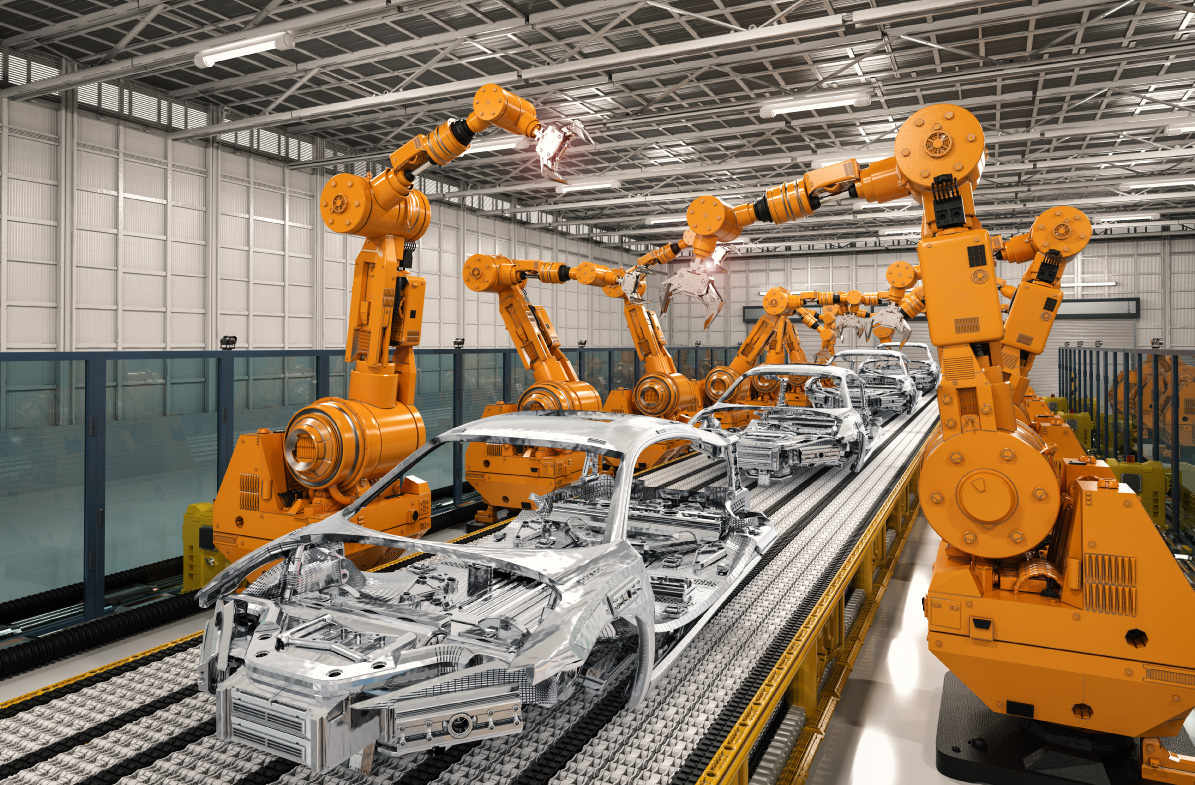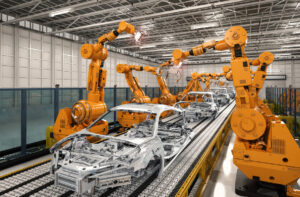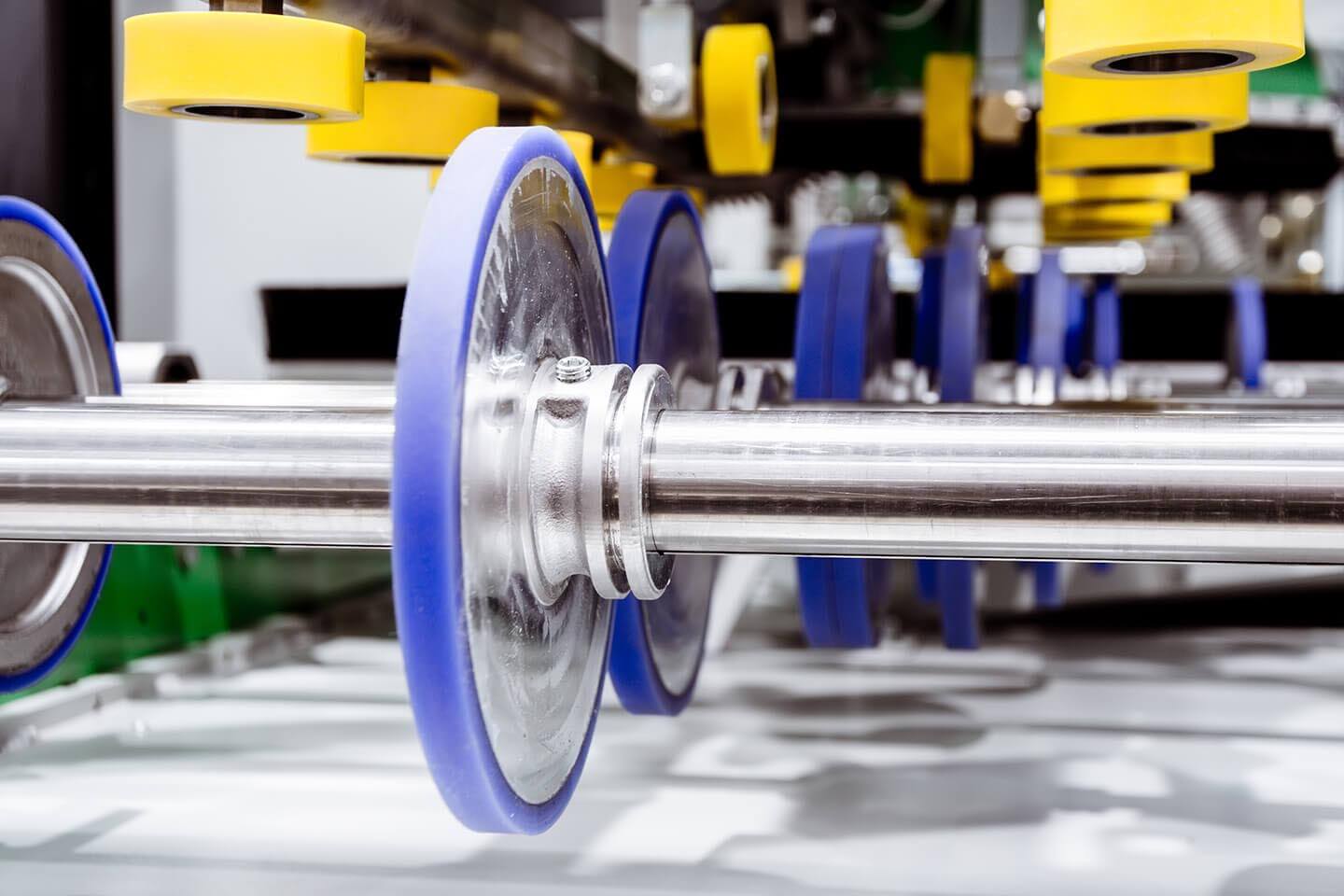
All industries strive for continuous improvement and the automotive sector is no exception. The materials used in automotive applications continue to advance to meet the evolving needs of the sector, especially the drive towards lighter weight vehicles with more reliability and a better riding experience. Polyurethane is often at the center of these innovations. Urethane formulations enable lighter parts that provide outstanding impact and abrasion resistance in addition to durability and longer lifespans. For these reasons, many automotive manufacturers prefer polyurethane as it offers many advantages over conventional materials like metal, plastic, and rubber.

The team at PSI Urethanes are leaders in the manufacturing of cast urethane parts used by professionals in the automotive industry. Below is information on the most common urethane parts that PSI produces for the automotive industry such as gaskets, washers, bushings, rollers, springs, liners, and engine mounts – and why urethane parts are the best choice for each of these applications. The parts below are just some of the custom products that PSI creates for the automotive industry. Our team tailor-makes precision cast urethane products to meet our customers’ unique specifications. Nearly every detail can be customized including the durometer, thickness, and color. To learn more about our custom urethane formulations, please visit our website.
Urethane Gaskets Deliver Toughness for Auto Applications
Urethane gaskets stop dirt, gas, dust, or fluid from leaking out of, or into, the parts it joins. Gaskets fill the gap between two objects to prevent leakage and act as a vibration dampener while under compression. To do their job effectively, gaskets must create a reliable seal, even under heavy vibration and intense pressure. Urethane has a markedly higher load bearing capacity than conventional rubber, which is an important characteristic to have for applications that are inherently high-stress and/or high-load.
There is a range of applications for gaskets in the automotive sector, including within engine technologies and automotive assemblies. Polyurethane is the toughest of all elastomeric materials and is the preferred material for gaskets due to its ultra-high strength and durability under pressure. Polyurethane gaskets are well-known for their ability to conform to the shape of their application, withstand changing weather conditions, and remain flexible across a wide range of temperatures. Urethane gaskets, unlike rubber, can be formulated to remain flexible in arctic-like conditions and to withstand fluctuations in temperature, from -90°F to 250°F. PSI’s standard formulas will remain flexible at -40°F on the Bell Brittle Test.
Urethane Washers Achieve Excellent Resistance to Chemicals and the Elements
Washers are fundamental to the function of many engineering processes and machinery within the automotive sector, and are especially useful when assembling mechanical parts using bolts and nuts. Urethane washers are known for their excellent mechanical strength, good wear resistance, and aptitude for sealing and cushioning. Additionally, they deliver outstanding resistance to contaminants and the elements. Compared to other material options, polyurethane bushings are more tolerant of and less likely to degrade when exposed to greases, oils, fuels, salts, solvents, rust, and chemicals – making urethane washers an excellent option for the automotive sector. Additionally, other materials, like rubber, are more susceptible to degradation due to environmental factors. Polyurethane, on the other hand, is resistant to weather conditions such as extreme low and high operating temperatures, ozone, and UV rays– making urethane a viable material for applications nearly anywhere in the world.
Urethane Bushings Provide Durability and Longevity
Systems that utilize bushings often endure challenging operating conditions including extreme low and high temperatures, heavy loads, and varied stresses. Bushings can be manufactured from a variety of raw materials but are most frequently made of rubber, metal, or polyurethane. When compared to metal, urethane bushings typically cost and weigh less, making them an attractive option for the automotive sector which focuses on minimizing vehicle weight. In many conditions, urethane parts run longer than the competition, especially in harsh environments and under adverse conditions.
Urethane bushings provide excellent shock absorption and sound dampening – both of which deliver big benefits for automotive applications such as a vehicle’s suspension. Without the presence of bushings, elements of the suspension system would fatigue prematurely, thus, polyurethane bushings also serve to extend the lifetime of other parts and reduce equipment downtime. The team at PSI are experts creating custom automotive bushings for each type of vehicle or usage, with the ability to specify a range of properties including durometer (hardness).
Urethane Engine Mounts Outlast the Competition
A mount fixes an object in its operating position and helps prevent the transfer of noise, vibration, and movement from one piece of machinery to another. Mounts limit vibration and flexing to prevent wear and tear on critical components, they also control torque and eliminate breakage.
Urethane mounts are excellent shock absorbers – effectively and safely dispersing and absorbing energy. When needed, energy dissipates outward, away from the source of the shock impact, so that the object or the object’s internal components, such as the engine, are not damaged. PSI manufactures urethane mounts that are the industry standard replacement for rubber factory mounts that degrade, wear, and cause vibration.
Urethane Springs Excel Even When Exposed to Extreme Temperatures
Springs are simply devices that absorb energy when compressed and release energy during expansion. Springs come in a variety of types and can serve a variety of purposes. Steel alloys are the most commonly used spring material, but steel is not appropriate for all applications. For this reason, some springs are made of urethane.
Urethane springs are used in a range of mechanical systems including in automotive suspensions and clutches. They can typically maintain their effectiveness and withstand extreme temperatures – something other materials simply cannot do. Urethane springs also deliver excellent shock absorption, chemical and abrasion resistance, load bearing abilities, and longevity. The team at PSI specializes in custom urethane products like springs.
Could your automotive process benefit from the durability and versatility of urethane parts?
Contact the team at PSI to learn more about our custom urethane formulations and the various ways we serve the automotive sector.
Urethane Rollers Provide Cost-Effective Solutions
Most manufacturing facilities across the globe rely on rollers to smoothly process and transport products. It is imperative that rollers are robust and able to endure the often harsh and unrelenting demands of manufacturing environments. Due to its many advantages, urethane has become the go-to material and is the best material for roller applications.
Urethane rollers are utilized in a range of applications including automotive assembly lines. The demand for urethane rollers continues to grow as urethane products exhibit more durability and longevity compared to plastic, rubber, and metal alternatives. In addition to the functional benefits of urethane rollers, polyurethane rollers are often less expensive to manufacture than other alternatives, making urethane a cost-effective solution.
Urethane Liners Deliver Unmatched Abrasion Resistance
Equipment wear and tear is often caused by repeated exposure to abrasive or corrosive materials as well as damage from recurring impacts over time. Fortunately, polyurethane liners provide portions of the automotive and transport sectors, such as trucks, with protection that results in longer lifespans.
Urethane has great abrasion and wear resistance, resulting in maximum equipment runtime. There are two types of abrasion: sliding and impingement. Sliding abrasion refers to scraping and rubbing, while impingement abrasion refers to particles or objects striking the urethane surface at a high angle. Most wear during operations is from a combination of both sliding and impingement – and urethane liners provide excellent protection from both.
About PSI Urethanes
Since 1966, through our own independent research and activity in the Polyurethane Manufacturers Association, PSI Urethanes has stayed on the leading edge of urethane technology – including developing advances in new materials, comprehensive designs, and processing technologies. Today we are among the most respected and trusted suppliers of custom polyurethane products.
We operate from our 45,000-square-foot manufacturing facility in Austin, Texas, which houses an extensive stock of polyurethane products. Our fully equipped manufacturing facility includes a versatile range of processing machinery, which allows us to work on unique, one-of-a-kind projects, as well as high volume components. Our in-house engineering, tooling, and custom mold shop, produces custom and stock production orders with exceptionally fast turn-around times. From conception to prototyping, to final production runs, our technical representatives and design engineers will work closely with your staff to meet your critical tolerances and specifications. You are guaranteed to receive experienced, professional, and personalized service from the first contact through your on-time delivery, with complete confidentiality and dedication to protecting your good name.
PSI Urethanes specializes in custom polyurethane products. Contact us today to see how we can help with your next project, or give us a call at 1-800-888-5156.

